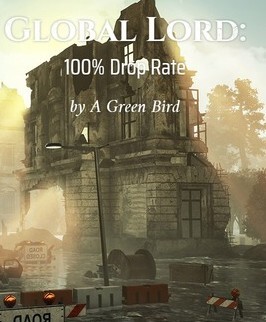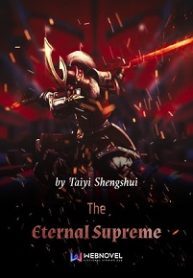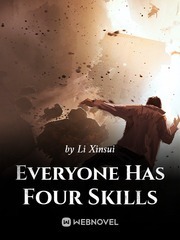Independence.
The word “independence” carries quite a significant meaning in the film industry. Perhaps the biggest concern and goal for most directors is whether they can accurately project the values of the script onto the movie and, if possible, how well they can convey those values to the audience without losing any meaning. Unlike commercial films, which aim to generate profits, independent or indie films tend to focus more on the original purpose of cinema, resulting in the advantage of relatively less artistic compromise.
Facing the audience with a layer peeled off, it is relatively easy to convey the film’s identity. However, not everything that comes to mind about indie films is positive. There were widespread perceptions that they were just works made by those infected with the “art disease”[1] or by amateurs.
“Sir, shouldn’t we raise the angle of the lighting a bit? If the main light source comes down like that, the faces won’t be properly lit on the screen… Do we have anything else to use as a secondary light source? You know, that thing with the fluorescent light. I think it’d be better to go a bit softer in this scene.”
“If you mean going softer, are you talking about the Kino Flo[2]?”
“Yes!”
Commercial film crews are known for their outstanding attention to detail. From production, direction, cinematography, lighting, sound, and art, there are directors for each department, as well as second and third assistant staff members who form the central axis. The number of team members responsible for correction, post-processing, and editing was so enormous that it was impossible to count. In contrast, indie films are…
“We’re going to have the boom[3] in the frame at this rate! With this setup, the audio will pick up all kinds of noise, and will the Tascam[4] even work properly? Please raise it a bit more!”
There is a serious lack of manpower. Of course, there are experienced staff members in indie films as well, but nine out of ten are either recent college graduates or undergraduate students in film-related majors. As a result, there are many points to consider because of their lack of field experience.
“Yeongguk! What angle would be good for the props?”
“Shouldn’t we ask Taeseop about that?”
“He’s too busy with extending the shooting time right now. He doesn’t have the mental capacity to worry about this. So, Yeongguk, please take a look!”
It wasn’t like this from the first day. However, it was so frustrating to just stand there and watch that he couldn’t help but get involved. If this were food, it would be like sprinkling sugar where soy sauce was needed – how could he pretend not to notice? At first, he only wanted to help out a bit, but it escalated to this point.
“I studied a bit from some books before the film shooting. I had to understand the terms directors often use. And while doing that, I also studied about films.”
After saying this, they kept asking me more questions. Because of their lack of field experience, I just let it slide. But for the film crew, having one more helping hand was very important. Especially if it’s a hand with field experience, there’s no reason to refuse. At that moment, the scriptwriter and director, Choi Taeseop, rushed to the shooting site.
“30 minutes! We have to wrap it up within that time!”
* * *
1-1[5] is a term often used in the indie film industry. Many times, they would try to get through a scene without any NG takes to save on film costs. Usually, they would rehearse multiple times to prepare for any potential NG takes, but even that can be difficult. This is mainly because of issues with casting on the film set.
“Scene number 21, Jihwan, at the police station!”
There’s no script supervisor or assistant director to be found. The person in charge of props rushed out with the clapperboard, shouted, and stepped out of the frame. Director Choi Taesub leaned forward slightly. He had already seen the boy’s exceptional acting skills on TV. However, there was something about the liveliness on set that couldn’t be fully captured on a television screen.
“Hey, what are you so proud of, huh? Why are you keeping your mouth shut like a clam? Are you not going to tell me your name? Huh?! You’re so stubborn. Hand over that bag! What did you steal?”
A man dressed as a police officer shouted fiercely. His acting had many unnecessary bits, but his Busan dialect was top-notch. The boy sitting opposite him tightly clutched his bag at that moment as if he won’t let it be taken away. His face was covered in various scratches, like a trail of scars.
“Don’t touch it!”
“What? This little rat doesn’t know how scary the world can be! You’ve caused trouble on the seafront so many times already! What are you doing climbing up the seawall that’s been blocked off to stop you from going there?! Society is rotting away because of troublemakers like you!”
Despite the police officer’s scolding, the boy’s eyes didn’t lose fierceness.
“Fine! If you don’t give me your guardian’s phone number, I’ll lock you in the detention center for a few days! If you don’t want that, just keep your mouth shut like you’re doing now.”
“…”
“What a pain! What’s this?! You’ve been wearing this around your neck since earlier. Where did you steal it from? Hand it over!”
“Is this how the police are supposed to act?!”
“Shut up! You never listen to what you’re told and just keep babbling nonsense.”
The police officer grabbed the boy’s head tightly with his fist. When he showed the necklace he snatched, the boy’s name and the orphanage’s phone number were written on it. It’s like a military dog tag.
“Kim Jihwan. Is this your name? XX Orphanage? The area code is Seoul, huh? I can tell without even looking! You ran away from the orphanage and came all the way here! You’re just a little brat with a chip on your shoulder! Tsk.”
“Hey, Officer Choi, stop nagging and let me see.”
At that moment, another police officer appeared. He was played by Song Jeongseok. The actor was cast after much difficulty, and the boy himself casted him. The actor’s years of experience in the theater made his acting flow as naturally as water.
“Kid, is your name Kim Jihwan?”
“…”
“If you don’t talk, I can’t help you. You seem to be from an orphanage in Seoul, but why did you come down here? Did you come alone? Or did someone come with you? Don’t worry. I’ll handle it well. Just tell me.”
The more the boy was asked, the tighter he closed his mouth. It’s a silent act of defiance as if he’s determined not to speak. The police officer eventually sighed and picked up the phone. It’s late, but the call connected after just a few rings.
“Thank you for your hard work. This is the Yeongdo Police Station in Busan. I wanted to ask you something. Is there a child named Kim Jihwan at your orphanage? He seems to be around 15 or 16 years old. Yes…?!!!!”
At that moment, the police officer’s eyes widened in shock. Soon after, he hung up the phone and looked at the boy with a strange expression.
“Who are you…?”
Kim Jihwan supposedly died last year.
* * *
Schools have always been a place that evokes strange emotions. I played hooky many times in the past because I didn’t want to go to school, but now I cherish every day that passes by without a care. The students rushed to take out their lunchboxes as the bell rang for lunchtime. On my desk, stained with my fingerprints, was a lunchbox.
In my past life, I hated braised mackerel and lotus root side dishes. Now, I dip the rice in the mackerel broth and push it into my mouth with the lotus root. The feeling of fullness flows over the tip of my wriggling tongue. Why did I use to be so picky about side dishes?
It was while I was eating lunch. I could feel the glances from my surroundings. Some female students even looked at me as if I were a celebrity, especially now that they knew I was the ambassador for Yeongdo District. Just like now.
“Yeongguk, do you want to drink this?”
A female student shyly smiled and placed coffee milk in front of me. It’s an event that happens almost every lunchtime, like clockwork. From chocolate to coffee milk, there’s no particular reason for it. It’s because Kim Hajin, who has become a young man in the currently airing drama Man of August, like coffee milk. No matter how I look at it, there’s a huge gap between that handsome gentleman and me…
“Thank you.”
With just one phrase, the female student smiled brightly and returned to her seat. Other female students swarmed around her like a flock of sparrows. They huddled together and gossiped. By the way…
“It’s been two weeks…”
The filming period for indie films was usually quite short. Not only was the screening time short, but the production environment was also poor for capturing grand narratives. The shortest period was about a week, and the longest was about a month. Of course, there have been many cases where the production budget was insufficient, and the project fell through. However, Choi Taeseop’s To Jihwan was different.
From relatively well-equipped filming equipment to a decent number of staff for an indie film, it’s clear that Choi Taesub has been preparing for this for a long time.
To Jihwan.
It’s a story about friendship. I’ve read the script several times, but I still couldn’t fully understand the feelings of the protagonist, Seongtae, who wanted to be called “Jihwan.” How did it feel to live under a dead friend’s name? What would they think every time that name was called? It’s still difficult. I pondered for a while about what friendship was.
None.
I was not sure if there was anyone I could call a friend in my previous life. When I was a famous actor, some people approached me for money, but there was no one I could confide in. I don’t blame those people. Of course, some sunbaes cared for me, but I didn’t appreciate their sincerity. I was just a madman determined to see the end of acting back then. I was that selfish. It was then.
“Yeongguk, it’s lunchtime. Don’t you want to play soccer?”
“Huh?”
Sweaty friends in worn-out undershirts approached, carrying an old soccer ball. That’s right, during this time, we played soccer a lot during lunchtime. Even back then, I enjoyed hanging out with friends. It was enough just to roll around in the dirt without any worries or burdens.
“Alright, let’s play!”
“Jang Yeongguk! Come to the head teacher’s office!”
At that moment, our homeroom teacher Kim Bongdu entered the classroom. Disappointment was clearly written on my classmates’ faces.
“I’ll play with you in a bit.”
With that, their faces brightened. Could they really be so happy just by kicking a ball together? When I arrived at the head teacher’s office, Kim Bongdu offered me a chair.
“What are you waiting for? Sit down.”
Kim Bongdu tapped the chair’s armrest with his fingertips and then looked at me.
“Normally, this isn’t allowed, but the principal has granted special permission this time.”
“Really?”
“Yes. It was crucial that you were appointed as the ambassador for Yeongdogu. If not for that, you wouldn’t have received this favor for shooting an indie film and not even a network drama. But you can’t skip all your classes, so attend the morning classes and then go for the shoot. The shooting period is two weeks, right?”
“Yes.”
Kim Bongdu rubbed his nose and added.
“So, where will this indie film be screened?”
“There’s a small theater in Seoul that exclusively screens indie films. It’ll probably be screened there.”
“What? Then I can’t even watch it? Will it be released on video?”
“I don’t know, will there be that much demand? Usually, only people who like indie films seek them out and watch them.”
“Anyway, you’re filming a movie. Did the director win the lottery or something? Or is there money pouring out like tap water from somewhere?”
“It’s because of their passion.”
“Passion, what passion? I get it. Go ahead. And don’t neglect your studies because you’re filming a movie. Studying is more important at your age. Be prepared if your grades drop in the final exams.”
“Don’t worry. I’ll be first in my class.”
“Jeez, you never back down from a word.”
Kim Bongdu hid his disappointment. He had said he was a big fan. He must have had high expectations for the film.
“Aren’t you leaving?”
“Teacher, can I ask you one thing?”
“What?”
“What is a friend?”
As an actor, there were bound to be areas where one feels stuck. To make the audience accept you, you must understand the experiences of others that you haven’t experienced yourself. Friendship was like a vast ocean to me. I couldn’t grasp it, so I couldn’t chase after it. I asked, desperately clinging to a straw. That’s when it happened.
“A friend…”
Whether he knew it was a question about the movie and answered it or whether he just wanted to explain his personal feelings, I didn’t know.
“When I was young, I had a close friend around the same age as you, Yeongguk. He transferred to Seoul, and I stayed in my hometown. We didn’t contact each other for more than a decade. But a few years ago, I heard some bad news. I asked around and went to a funeral hall in Seoul. When I saw the portrait, my heart felt heavy. The friend I remembered was fourteen years old. I wondered how he had lived all this time. That’s when I regretted it. I should’ve contacted him sooner. A friend, you know. But you guys…?”
Peeking through the slightly open door of the head teacher’s office, my friends with buzz-cut hair stuck out their heads. Their lips were sticking out as if they had made a promise.
“Teacher, Yeongguk promised to play soccer with us! It’s almost time!”
“Can’t you play soccer without Yeongguk?”
“If our striker is missing, what can we do, teacher? We made a bet with Class 7 today. If Yeongguk isn’t there, we’ll lose!”
“Alright, Jang Yeongguk, you can go.”
Kim Bongdu sent the students away and stood up. In the playground, reflected through the window, students with buzz-cut hair kicked an old soccer ball together. Even the normally well-behaved boy had a face full of smiles as the dust swirled around him. Yes, like opening a weathered diary, memories of distant friendships flooded back after decades. A friend, you know.
“It’s about not forgetting.”
[1] “Art disease” refers to people who are overly obsessed with art or producing artistic works, often to the point of being pretentious or impractical.
[2] A Kino Flo is a type of lighting equipment used in filmmaking to create soft and even illumination on set.
[3] A boom is a long pole used to hold a microphone above the actors to capture clear audio.
[4] Tascam is a brand that specializes in producing high-quality simultaneous recording machines, allowing for multiple audio tracks to be recorded simultaneously.
[5] One Take, One Shot
RECENTLY UPDATES







